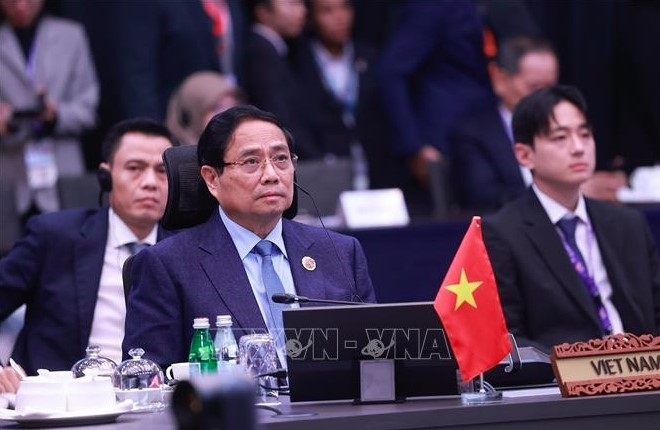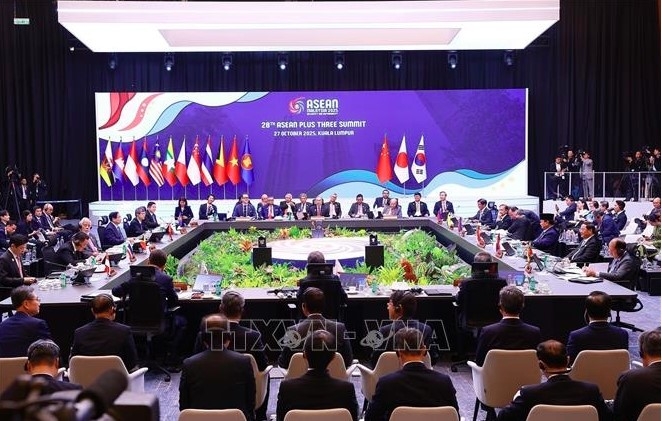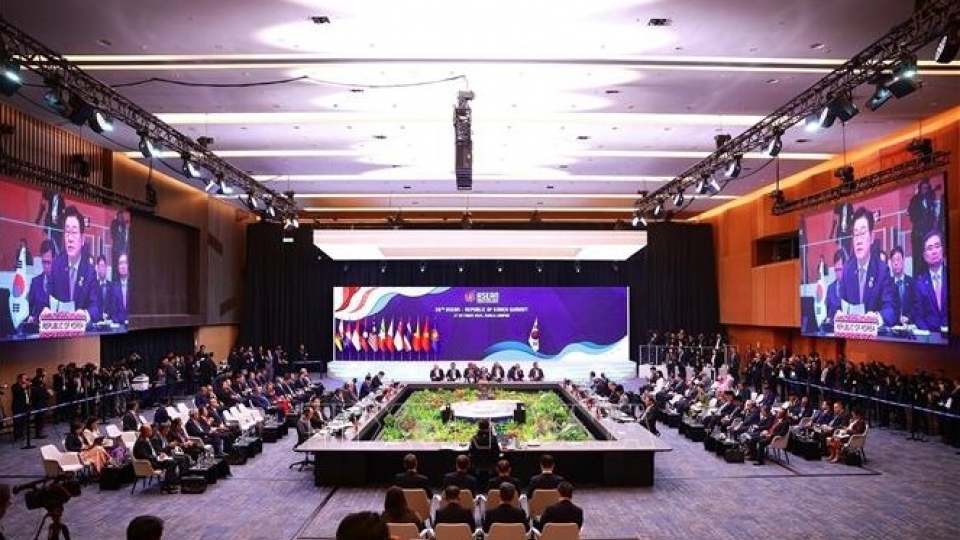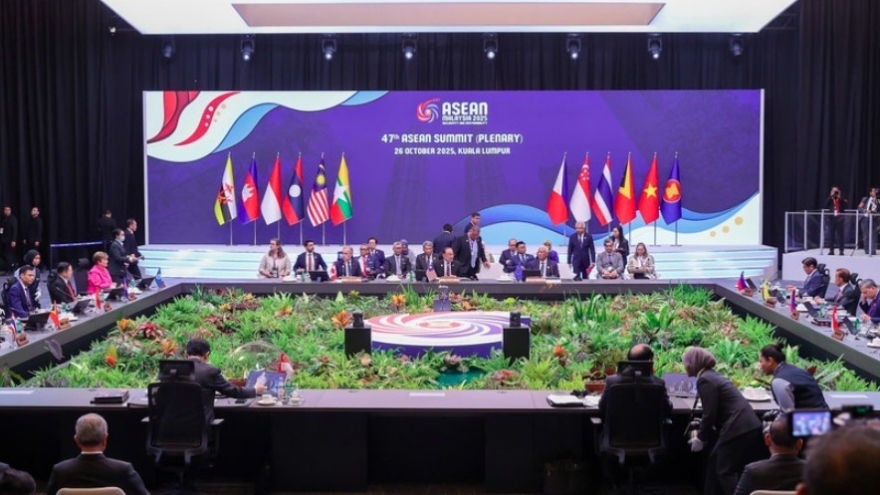PM Pham Minh Chinh outlines orientations to strengthen ASEAN+3 cooperation
VOV.VN - Prime Minister Pham Minh Chinh joined leaders of ASEAN, China, Japan, and the Republic of Korea (RoK) at the 28th ASEAN+3 Summit in Kuala Lumpur, Malaysia on the morning of October 27, continuing the series of ASEAN summits with partners.

The Director of the ASEAN+3 Macroeconomic Research Office (AMRO) and the Chairman of the East Asia Business Council (EABC) attended as guests of the chair.
Leaders noted that since its establishment in 1997, ASEAN+3 has become a key framework for regional cooperation, focusing on economic and financial safety nets and sustainable development. Progress in carrying out the 2023–2027 ASEAN+3 Work Plan reached 62%.
The Chiang Mai Initiative Multilateralization (CMIM) continues to reinforce regional financial stability, while AMRO increasingly supports member countries in shaping effective macroeconomic policies. The ASEAN+3 Emergency Rice Reserve (APTERR) has become a strategic tool to promote food security in the region.
Amid global and regional uncertainties, leaders emphasized that ASEAN+3 must remain a driving force for cooperation, while maintaining growth momentum, responding efficiently to challenges, and enhancing resilience against shocks. China, Japan, and the RoK highlighted the theme “Inclusive and Sustainable,” recognized ASEAN’s central role in regional development, and reaffirmed their support for realizing the ASEAN Community Vision 2045, implementing the ASEAN Power Grid, and advancing the ASEAN Digital Economy Framework Agreement.
Participants agreed to accelerate the implementation of the 2023-2027 Work Plan, expand and optimize the Regional Comprehensive Economic Partnership (RCEP), strengthen regional finance through CMIM and the Rapid Financing Facility (RFF), support micro, small, and medium enterprises, and promote a digital, green, and sustainable economy. Efforts will also focus on combating transnational crime, managing borders, securing food and energy, and responding to climate change, disasters, and pandemics, contributing to inclusive and sustainable societies for future generations.
Prime Minister Pham Minh Chinh shared assessments on ASEAN+3’s strategic value amid rapid geopolitical and geoeconomic shifts, emphasizing that the bloc should foster closer unity, stronger connectivity, and greater innovation to sustain inclusive and resilient development and respond effectively to external shocks.

Prime Minister proposes three directions to strengthen ASEAN+3 cooperation in the new context: raising the quality of economic, trade, and investment ties while advancing digital and green transitions, leveraging FTAs and regional frameworks to diversify markets, strengthen supply chains, and invest in digital infrastructure and data centers; consolidating regional resilience through effective deployment of APTERR and RFF, enhancing energy security, climate adaptation, nuclear technology cooperation, and attracting green financing; and promoting unity, trust, and collaboration to maintain a peaceful, stable, and secure regional environment, while respecting international law, the UN Charter, and the 1982 UN Convention on the Law of the Sea (UNCLOS), resolving disputes peacefully, and fostering an open, inclusive, and transparent regional order with ASEAN at the center.
The summit concluded with ASEAN+3 leaders adopting a declaration to step up regional economic and financial cooperation.




